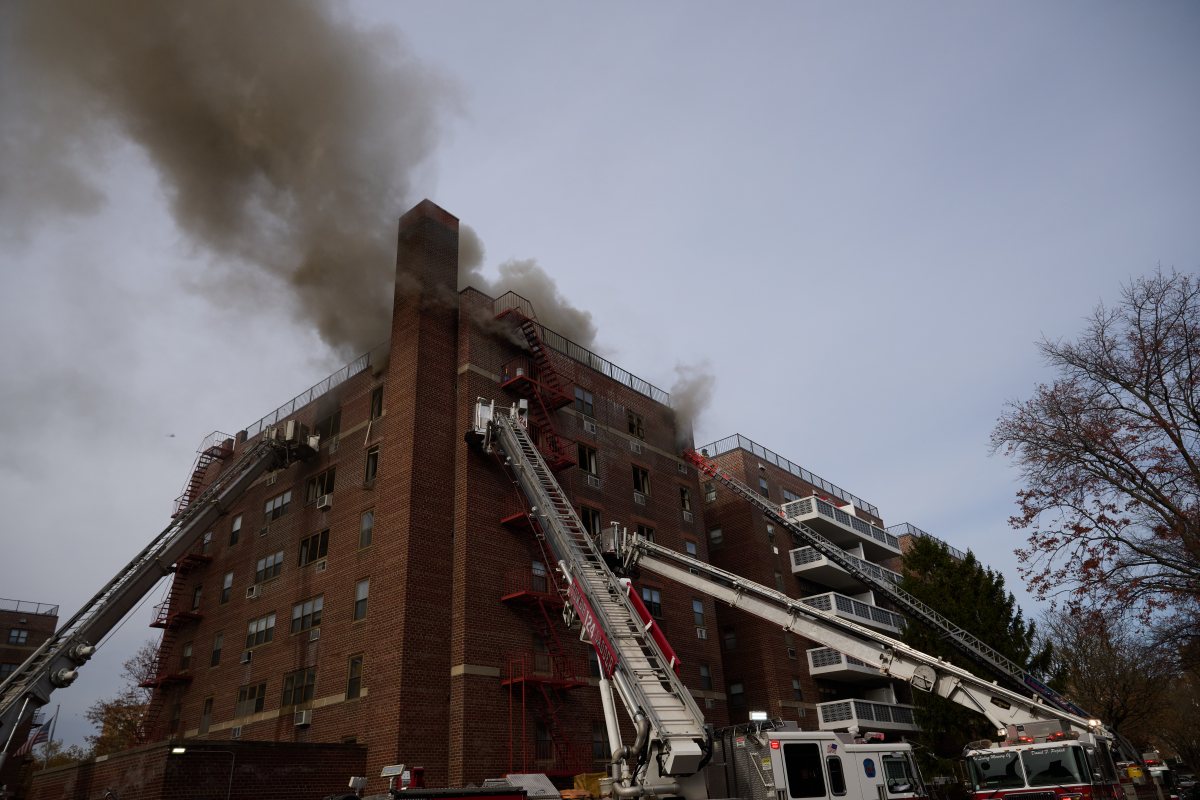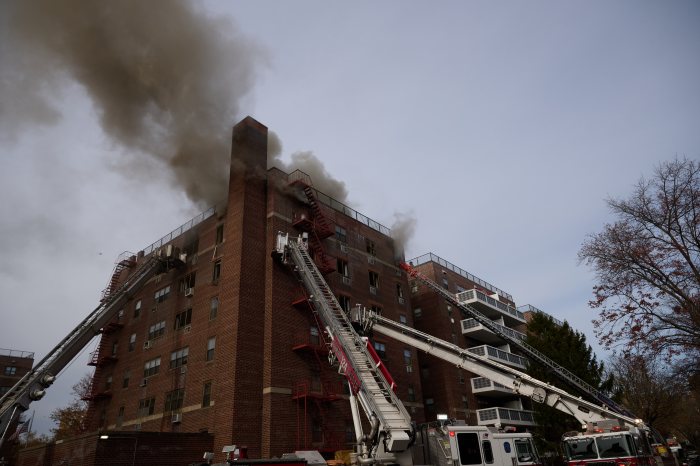By Lesley Sussman
An uncompleted luxury high-rise hotel at 180 Ludlow St. that has stood in limbo for four years, may continue to remain a hulking shell of a building and a neighborhood eyesore for months to come after Community Board 3 last week refused to put its weight behind a request from the developer for a zoning variance so that work could get restarted.
At its full board meeting on Tuesday evening March 22, at P.S. 20, 166 Essex St., which was attended by about 60 residents, C.B. 3 said it could not support developer Serge Hoyda’s efforts to obtain such a variance from the city’s Board of Standards and Appeals until the property’s owners agreed to hire at least 20 percent of the hotel’s full- and part-time workforce from a neighborhood job pool operated by the Lower East Side Employment Network.
The network works closely with employers to provide young people in the area with employment opportunities. The program coordinates the efforts of several community-based organizations, including Good Old Lower East Side (GOLES), Henry Street Settlement and University Settlement, which are all seeking to establish relationships with local businesses in the Lower East Side’s growing hospitality and retail sectors.
Hoyda, however, recently told C.B. 3 Land Use Committee members that he was not empowered to sign such a commitment because he did not own the building, but was simply hired to do the construction work.
Who exactly owns the property remains a matter of speculation, according to C.B. 3. The property is believed to be owned by boutique hotel investors Richard Born and Ira Drukier, whose BD Hotels group last year purchased the former Salvation Army women’s residence at 145 E. 39th St. in Murray Hill for $28 million.
Born and Drukier have an ownership interest in or operate 22 hotels in New York City, including the Chambers Hotel in Midtown, at 15 W. 56th St., and the Maritime Hotel in Chelsea, at 363 W. 16th St.
“It’s a complicated and confusing issue and we’re still trying to get some clarification,” David McWater, chairperson of C.B. 3’s Land Use, Zoning, Public and Private Housing Committee, told the board. “Hoyda won’t sign the provision because he’s not sure he can do it. He doesn’t want to be dishonest,” McWater said.
The 180 Ludlow St. project has had its ups and downs since 2007, when the property’s owners first decided to build an upscale 173-room luxury hotel there. That plan was cancelled when the economy tanked, and the owners then asked the city to allow them to build a 158-unit rental apartment building instead.
That plan, too, fell apart because of financing problems, and now, years later, it’s back to square one with new plans on the table calling for a luxury hotel.
But because of questions about engineering and design, the city has remained reluctant to issue the various extensions and zoning variances required to finish building a hotel. Currently, 180 Ludlow St. is a concrete skeleton of a building and has been criticized as a neighborhood blight.
At the March 22 meeting, board members debated whether to support Hoyda’s zoning variance application.
Although the community board in 2009 reluctantly endorsed building residential units there because the developer voluntarily agreed to set aside five apartments for low-income families, last week, members took a harder stand.
Board member Harvey Epstein said that if Hoyda wanted C.B. 3’s support, “all he has to do is contact the owners of the building and put this hiring provision in.” Epstein added that it was important to insist that 20 percent of the hotel’s workers be hired from the community, “because if we don’t, they won’t hire anyone locally — that’s an experience we’ve had in the past.”
Epstein noted that other recent hotel projects in the neighborhood had taken people from their other operations and put them to work here.
“We’re only asking for a small percentage of workers to be locally hired,” he stated.
McWater, however, noted that it didn’t matter how the board voted because it wouldn’t affect the B.S.A.’s decision. McWater advised voting in favor of the developer’s variance application.
“It’s only our recommendation to them,” he explained. “It’s a real question what it means because they’re not bound by the same recommendations we use. Our role in this B.S.A. process is poorly defined, and what we need to do is find the right fit on this issue.”
His sentiment was echoed by fellow board member Rabbi Y.S. Ginzberg.
“Hoyda’s being honest,” Ginzberg said. “We should take our hat off to him. Maybe they’ll end up hiring more than 20 percent local people, so why should we limit them?”
Another C.B. 3 member, David Crane, proposed an amendment to the measure “to make it clear that the denial to support the developer’s application was only because he didn’t agree to the 20 percent local hiring stipulation.”
In the subsequent vote, a majority of the board voted not to support the developer’s zoning variance application.





































